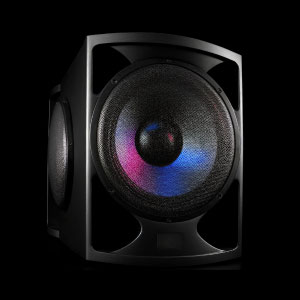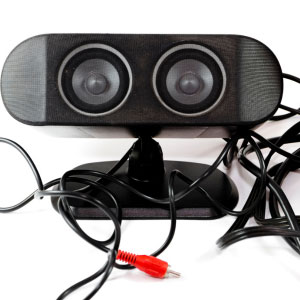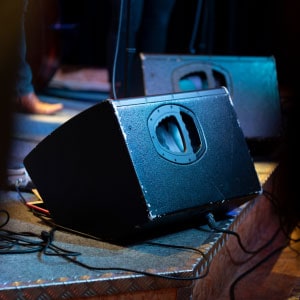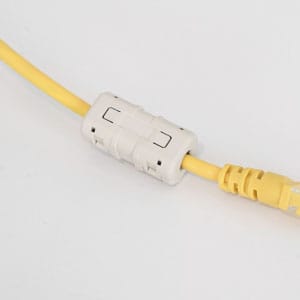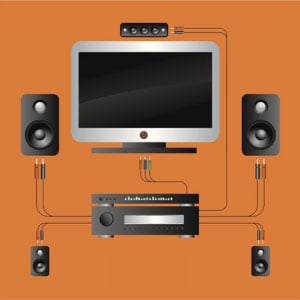It’s surprising for some when they experience radio frequency interference (RFI) in a computer’s speakers. When your computer speakers pick up RF signals, don’t be alarmed because it’s not a problem with your PC.
RFI happens when the cable wire has a weak shield or if it’s too long. To stop interference on speakers, move them or tweak the wire’s position. You can also use ferrite clamps, which reduce RFI.
You’ll have worry-free music, film, or series-streaming on your computer when you learn how to stop radio interference from PC speakers.
Ways to Stop Radio Interference From PC Speakers
Here are some quick fixes when your speaker’s picking up a radio signal out of nowhere. As much as possible, replacement is not the priority to save you from spending lots of money.
What to prepare
Solving RFI on computer speakers involves adjusting the unit’s position or wiring. Replacement is not always the solution unless you have the extra money. As such, only when you opt for a replacement that you’ll need items such as new wires, a wire cutter, and other related tools.
Also, you’ll need ferrite clamps, a shielded flexible conduit, a magnetic shielding foil, or a USB ground loop eliminator in instances where you’ll follow tips related to such items.
Method 1: Identify and disconnect the interfering electronics
First things first: listen for the interference and determine its source. To do so, remove one by one any electronics connected to your computer. After all, RFI is not always about the speaker wire. It can also be a virus or the speaker itself.
As you disconnect the electronic devices, you’ll be able to pinpoint the one responsible for the interference. In this case, once you do, take note of the device so you won’t plug it in while using your speakers again.
Disconnect the speaker last as you eliminate the device that causes interference. That way, you’ll be certain about the root of RFI because if it’s indeed the speaker, the noise will halt once you unlink it.
Method 2: Check the computer’s setting and its surrounding
You can also check the computer’s audio signal if it replicates the interference. To do so, go to the operating system’s volume mixer. Afterward, look for the “adjust system volume” tab, where you’ll mute each slider until you can spot the one that’s causing RFI.
Keep the slider muted to eliminate the noise, though it’s a band-aid solution. It’s also recommended to check your computer for possible malware or virus-causing noises.
Furthermore, if there are other electronic devices near the computer or Bluetooth speaker, move them farther to eliminate if they’re causing RFI.
Method 3: Check the cable
A cable issue is a usual suspect when interference happens. As such, check it first by ensuring that the audio cable is linked to the proper input in the computer.
Check the cable for possible damage, too, like loose wires or a broken shield. Such damage can cause interference as it weakens the protection of the wire. If that is the case, replace the cable and choose one with better shielding.
If the cable doesn’t have any damage and the RF interference persists, change its position or orientation to check if it’s on the other end or points to the origin of the frequency, like a transmitter, tower, or radio station. In turn, you’re also shortening the wire to avoid unwanted noises.
As mentioned, if the speaker wire is too long, shorten it – not cutting it unless there’s a demand for such due to damage. Shortening the cable means tying, folding up, or coiling up the excess wire so it stops acting as an aerial.
Method 4: Shield the wire
If replacement is considered, then buy shielded wires. Old speakers don’t have such wires, while newer models have them. If you opt to shield the current wires yourself, you can use a shielded flexible conduit or a magnetic shielding foil.
Both shielding items are readily available in hardware or electronic stores and are inexpensive. If you have computer speakers in audio systems, shielded wires are a good addition to counter unwanted noises.
Method 5: Use ferrite clamps
As mentioned, ferrite clamps, rings, coils, chokes, blocks, cores, or beads will help you get rid of RFI. Ferrite items improve the performance of sound systems, so they are a good investment against picking up radio on speakers and are readily available in hardware or electronics stores.
Place the bead or clamp around the wire closest to the speaker, serving as a filter against unwanted noises. For the former, choose the one that snuggly fits the wire, as there are varied bead sizes:
- 3-millimeter beads for gadgets with thin cords, from cell phone headphones to MP3 headsets
- 5mm beads for slightly thicker wires like those used in USB devices
- 7mm beads for even thicker, like those used in computers and electronics
- 9mm beads are extra thick, ideal for power cords
- 13mm beads are the thickest and are used for high-voltage and 12-gauge cords
For ferrite rings, wind it around each speaker wire 10 to 15 times. Ferrite cores, meanwhile, are covered by the wiring, so they’re installed internally. With many options to consider, opt for the ones that are easiest to use, like beads or clamps.
Method 6: Use a USB ground loop eliminator
A USB audio ground loop eliminator is another tool to help you solve the causes of radio interference. It isolates noise by separating the computer audio from the interference.
Since it’s a USB device, ensure you’re using one that’s compatible with your setup. It is readily available online, though you should expect to shell out a few bucks.
Method 7: Ensure proper grounding
One way to stop speakers from picking up radio signals is to ensure your device is properly grounded. Proper grounding means suppression of radio waves, so there’s less interference. Check the grounding of outlets where the computer or external speakers are connected.
If there are proper grounding and shielded cables, expect an improved sound system.
You can also try a different socket because of the offshoot chance that the outlet’s causing interference. If so, plug the computer or external speaker into another socket.
Method 8: Seek help
If you have tried the steps mentioned above, but headphones are still picking up radio interference, seek the help of a professional, say a technician or an electrical/electronic engineer.
You can also contact the source of the RFI if you believe they’re in the vicinity, like a local transmitter (when you hear a CB radio on the computer) or a radio station. Just narrate the issue to them so they can suggest fixes.
Your last resort top stop speakers picking up radio is contacting the Federal Communications Commission (FCC) if you’re certain the issue is with the radio station or transmitter, yet they can’t or refuse to offer a solution.
Conclusion
If one day you’re listening to a computer radio and hear another feed, disconnect the external speaker to see if it’s the source of the noise. Once you have determined the culprit that causes interference with speakers, you can shield its wires.
When computer speakers are picking up radio signals, replacing the unit or its cable is not the only solution. There are quick fixes for this dilemma, with you saving money and earning a do-it-yourself skill that would help you in the long run.
We hope our guide on how to stop radio interference from PC speakers has been helpful. Let us know if you need anything else!

Hello! I am Hart, the content writer and editor here at G0HWC. I used to be in the same local radio club with Howe, and he convinced me to join him in spreading my love for the radio with others. With a background in radio studies, I spend every day crafting accurate, easy to read content on various topics related to owning and using radios. I hope that my content can help you confidently venture in your radio journey!



